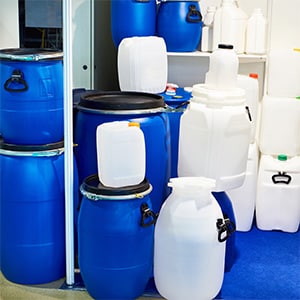"During a water-related emergency or outbreak, safe drinking water may not be available. Prepare for an emergency by creating and storing a supply of water that will meet your family’s needs.
Unopened, commercially bottled water is the safest and most reliable source of water in an emergency. If you do not have bottled water, you can make your water safe to drink by following the instructions on CDC’s Making Water Safe in an Emergency page and using clean containers to collect and store your water.
- Store at least 1 gallon of water per person per day for 3 days for drinking and sanitation.
Try to store a 2-week supply if possible. - Consider storing more water than this for pregnant women, people who are sick, pets, or if living in a hot climate.
- Observe the expiration date for store-bought water.
- If you are filling containers with water to store, replace the water every 6 months.
- Store a bottle of unscented liquid household chlorine bleach (label should say it contains between 5% and 9% of sodium hypochlorite) to disinfect your water, if necessary, and to use for general cleaning and sanitizing.

If you are filling containers with water to store, it is best to use food-grade water storage containers. FDA-approved food-grade storage containers will not transfer toxic substances into the water. They can be found at surplus or camping supply stores. Contact the storage container manufacturer if you are not sure whether the container is food-grade. If you are not able to use a food-grade water storage container, be sure the container you choose:
- Has a top that can be closed tightly.
- Is made of durable, unbreakable materials (not glass).
- Has a narrow neck or opening, if possible, so water can be poured out.
DO NOT USE containers that were previously used to hold liquid or solid toxic chemicals, such as bleach or pesticides..."
Emergency Water
No comments:
Post a Comment